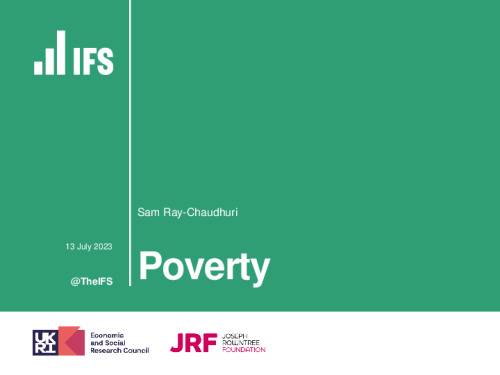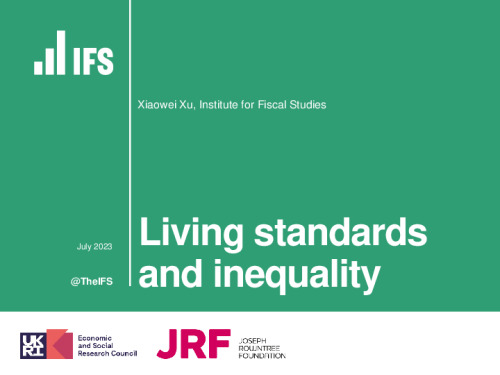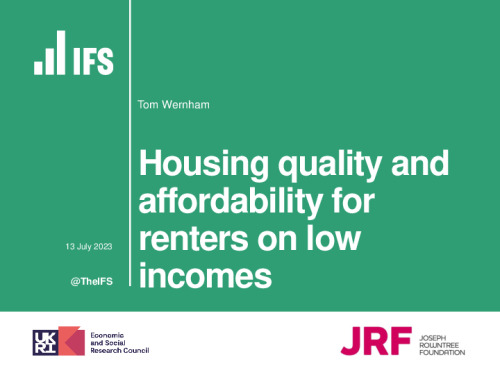Related documents

Download Sam Ray-Chaudhuri's slides
PDF | 335.74 KB

Download Xiawei Xu's slides
PDF | 209.72 KB

Download Tom Wernham's slides
PDF | 171.85 KB
After more than a year of high inflation, the cost of living remains at the top of the political agenda, with continuing interest in how low and middle income households are faring in particular. In that context, at this online event IFS researchers presented the key findings from their latest flagship annual report on living standards, poverty and inequality in the UK, funded by the Joseph Rowntree Foundation.
IFS researchers set out how household incomes have changed since before the pandemic, what the key drivers have been, and how these patterns fit into longer run trends. In addition, they presented new research on how successful the lump sum ‘cost of living payments’ have been in supporting low income households.
Chair

Associate Director
Tom is an Associate Director at the IFS and Head of the Income, Work and Welfare sector.
Speakers

Research Economist
Sam joined the IFS in 2022 and works as a research economist in the Income, Work and Welfare sector.

Research Economist
Tom is a Research Economist in the Income, Work and Welfare sector, having joined the IFS in 2020.

Senior Research Economist
Xiaowei joined the IFS in 2018 and works in the Income, Work and Welfare sector.
Event details
- Publisher
- Institute for Fiscal Studies
More from IFS
Understand this issue

Sure Start achieved its aims, then we threw it away
15 April 2024

Social mobility and wealth
12 December 2023

The economic stories that will shape 2024
5 January 2024
Policy analysis

Living standards since the last election
21 March 2024

Major challenges for education in Wales
21 March 2024

Sliding education results and high inequalities should prompt big rethink in Welsh education policy
21 March 2024
Academic research

Police infrastructure, police performance, and crime: Evidence from austerity cuts
24 April 2024

Labour market inequality and the changing life cycle profile of male and female wages
15 April 2024

There and back again: women’s marginal commuting costs
2 April 2024
